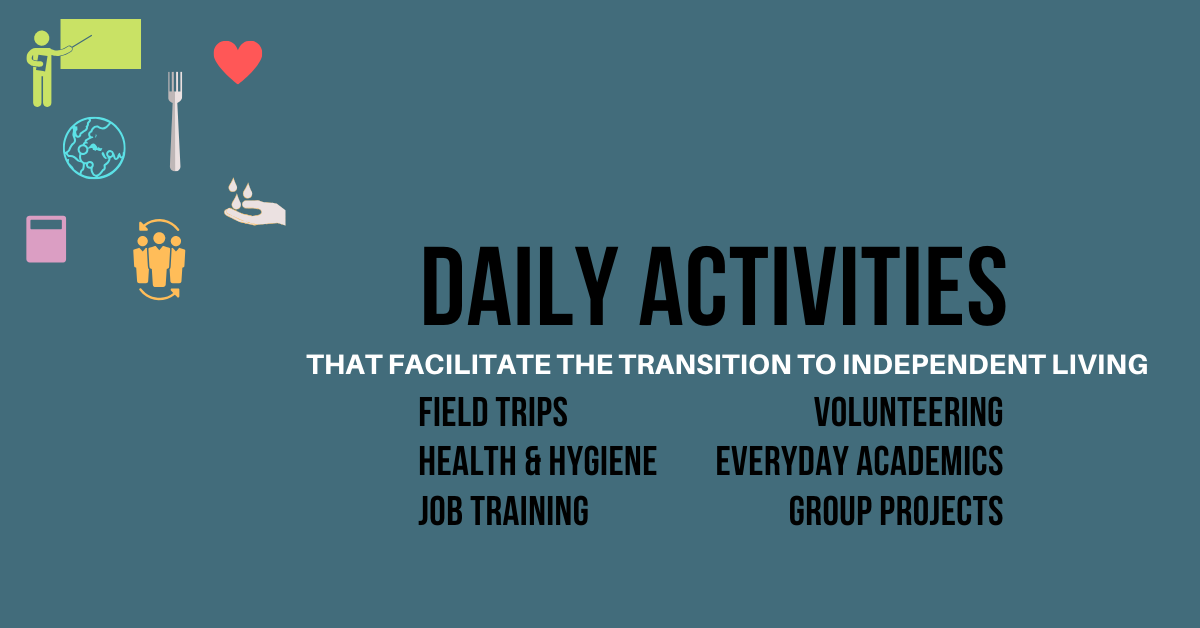Curriculum

In our Transitions program, student curriculum is driven by life skills, vocational skills and social skills, in addition to academics. Transitions instructors utilize Life Centered Education (LCE) to help ensure an equal balance of three critical domains of adult living including daily living skills, self-determination and interpersonal skills, and employment skills. LCE is the most widely used transition curriculum for children with developmental delays.
Life skills curriculum includes but is not limited to:
- Reading- Word recognition, sight words, reading in a group, reading individually, reading comprehension.
- Writing- Handwriting, legibility, formation, spelling, spacing, journals, reporting/recording skills
- Nutrition/Health- Healthy food(nutrition), nutrients found in food groups and what they do for the body, human development, emotional health, family life education, reading food labels, healthy lifestyle choice (food, exercise, leisure activities), diseases, personal hygiene, meal preparation.
- Life Skills Math- Clocks (time management), concept of scheduling in a day or future date, money (coin and dollar recognition), ability to add and subtract money, concept of how much money it takes to buy certain items, different metric systems that are used for cooking, reading word problems and converting them into math problems, measurements (volume, distance, cooking instructions)
- Social Skills- Manners, social behavior and interests, current event discussions, class projects, student-led discussion and presentation
- House Activities-Dishwashing, cleaning, house maintenance, and appropriate care of a home
- Group Activities- Job experience (on and off-campus), grocery store shopping, utilities, and appliance shopping for household needs, community outreach programs, restaurant practice, pedal boating, hiking, fishing, and off-campus field trips.

